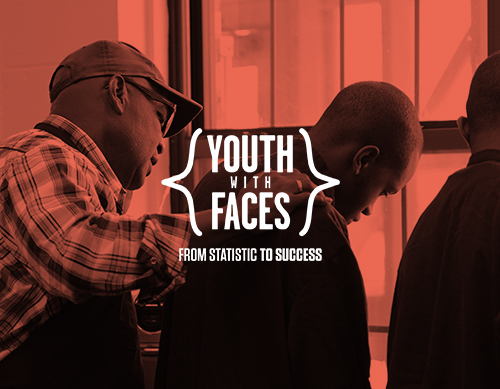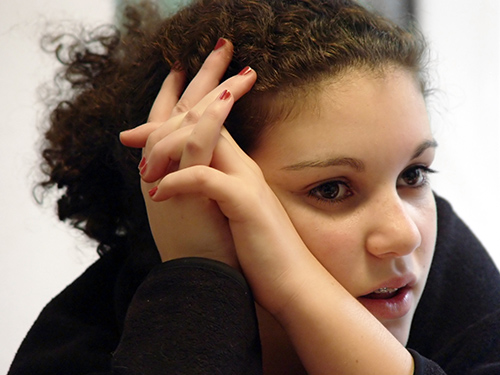Work Readiness

When youth are released from the juvenile justice system, few have vocational skills or education, and many lack financial support from their families. Without a way to earn an honest living, many of these young men and women become repeat offenders, creating a vicious cycle of crime and incarceration.
To end this cycle, Youth With Faces offers programs that help participants learn valuable skills that can help them secure jobs, stay out of trouble and earn money. We focus on jobs that teens can work while attending school and that can bridge to positions with greater responsibility and pay as they grow and mature.
3 out of 4 get jobs
Almost 75 percent of Youth With Faces participants secure post-release employment, compared to just 1 in 10 of their juvenile system peers. To help youth be successful, Youth With Faces offers:
- Work readiness classes. Youth prepare for future job searches by taking a career assessment, participating in our Future-U curriculum, building a resume, mapping out specific job search plans and conducting mock interviews.
- Job skills training. Youth have the opportunity to enhance their employability by participating in one of our job skills training programs. We offer Food Handler/Food Manager industry certifications and “Earn & Learn” paid work days in culinary arts.
- Financial empowerment. To prepare each young person to successfully manage their earnings, we offer a four-week program in the basic tenets of financial literacy. Taught by volunteers from Oakwood Bank, the course emphasizes budgeting, using bank accounts and the functions and dangers of credit cards and loans.
- Computer skills. We teach youth basic computer skills so they can prepare a resume, create basic business documents and perform better in school. They also learn to use fun programs like Canva to design menus and materials for our campus events.
- Networking. Students interact with professionals from a wide range of industries through mock interviews, career pathway exploration, field trips and more. These interactions introduce students to new possibilities and build excitement around the future.


